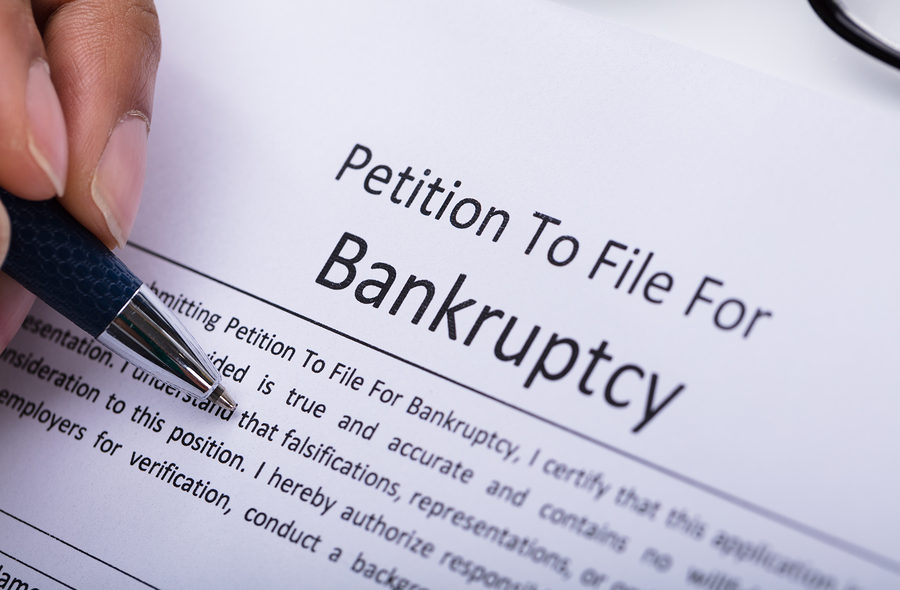When filing for bankruptcy, certain factors should be kept in mind, including the type of bankruptcy being filed, property exemptions available to the filer, and the various laws and legal regulations that accompany filing for bankruptcy.
The type of bankruptcy being filed.
The most common types of consumer bankruptcy are Chapter 7 and Chapter 13 bankruptcies. A Chapter 7 bankruptcy allows filers to receive a total discharge of their qualifying debts and is an option used mostly by filers whose debts are particularly high compared to their level of income. To file for Chapter 7 bankruptcy, filers must qualify under the bankruptcy means test. Chapter 13 bankruptcy allows the consumer to enter a repayment plan to pay all or part of his or her debts over the course of three to five years.
The cost of filing for bankruptcy.
The cost of filing for bankruptcy can depend on the attorney hired and the location of the case. For the most part, a Chapter 7 bankruptcy case can cost anywhere from $1,500 to $2,500. Since a Chapter 13 bankruptcy case tends to last longer, these types of cases can range anywhere from $2,000 to $4,000 for legal fees. Many attorneys who specialize in bankruptcy law offer affordable payment plans for their clients, so a large payment does not have to be made up front.
The proper use of Florida’s bankruptcy exemptions.
Many filers fear that by proceeding with a bankruptcy case they will lose all their possessions. However, Florida’s bankruptcy exemptions are actually quite generous and allow filers to keep most of their assets, including their vehicles and homes, throughout and after the bankruptcy. It is important that these assets be disclosed however, at the filing of bankruptcy, even if they are protected under an exemption.
Bankruptcy and its effect on your credit score.
A bankruptcy case does hurt the filer’s credit score, but many times, the drop in score is nowhere near as bad as a collections case or foreclosure. A bankruptcy case will normally stay on someone’s credit history for ten years, and a credit score can be rebuilt to a respectable number with good financial practices. The fear of what will happen to someone’s credit score after filing for bankruptcy should not be a deterrent. There are proven ways to rebuild your credit score after bankruptcy, and our clients are proof!
My credit score said on all three reports 775, I couldn’t believe that I had such a great score before 10 years. Tim for me was the best move I have made for my situation. I have no regrets, I am glad the past is the past. – Bill T.
Hi Tim- I just wanted to send a quick note and thank you and your team for handling my bankruptcy case. It is only a month or two after discharge, and my credit scores are already in the upper 600’s. – C.S.
The effects of bankruptcy on a person’s credit score depends on the score the filer had before filing for bankruptcy. If you have a higher credit score, the effect the bankruptcy will have will be more noticeable. However, if you have a lower credit score to begin with, the change may not be as much after filing for bankruptcy.
Joint account holders and co-signers are not protected.
A bankruptcy discharge releases the filer’s obligation to pay a given creditor, but if someone else is on the same debt, that person is still on the hook in the eyes of the creditor. This obligation includes joint accountholders, as well as co-signers. The bankruptcy case is unique only to the individuals named on the petition, not all people associated with the listed debt. Many individuals will ask whether they should finalize a divorce first and file for bankruptcy later for this very reason. It is important that these types of debts be disclosed when meeting with a bankruptcy attorney for the first time to properly determine the best course of action.
Courses required to complete bankruptcy.
Before filing for bankruptcy, filers are required to take a 90-minute credit counseling course and an additional course before the bankruptcy case is concluded. The purpose of these courses is to help the filer determine whether he or she can pay his or her debt outside of bankruptcy and provide proper financial guidance to prevent an additional bankruptcy filing in the future.
If you have questions on this topic or are in financial crisis and considering filing for bankruptcy, contact an experienced Miami bankruptcy attorney who can advise you of all of your options. As an experienced CPA as well as a proven bankruptcy lawyer, Timothy Kingcade knows how to help clients take full advantage of the bankruptcy laws to protect their assets and get successful results. Since 1996 Kingcade Garcia McMaken has been helping people from all walks of life build a better tomorrow. Our attorneys’ help thousands of people every year take advantage of their rights under bankruptcy protection to restart, rebuild and recover. The day you hire our firm, we will contact your creditors to stop the harassment. You can also find useful consumer information on the Kingcade Garcia McMaken website at www.miamibankruptcy.com.


